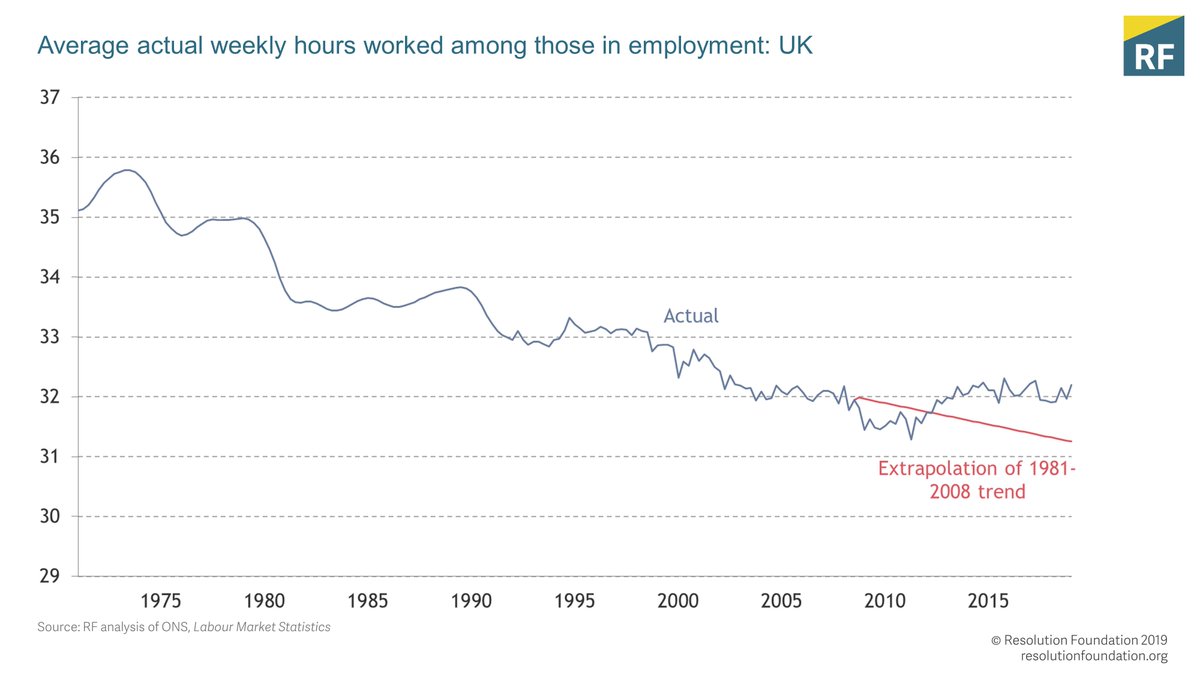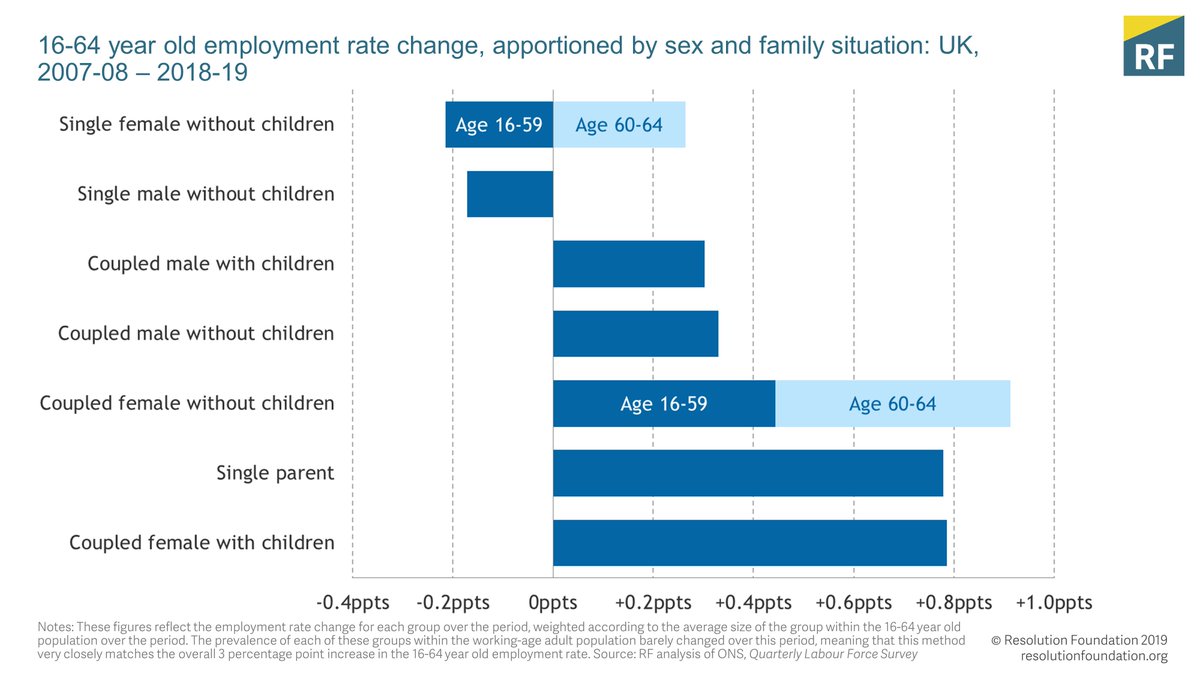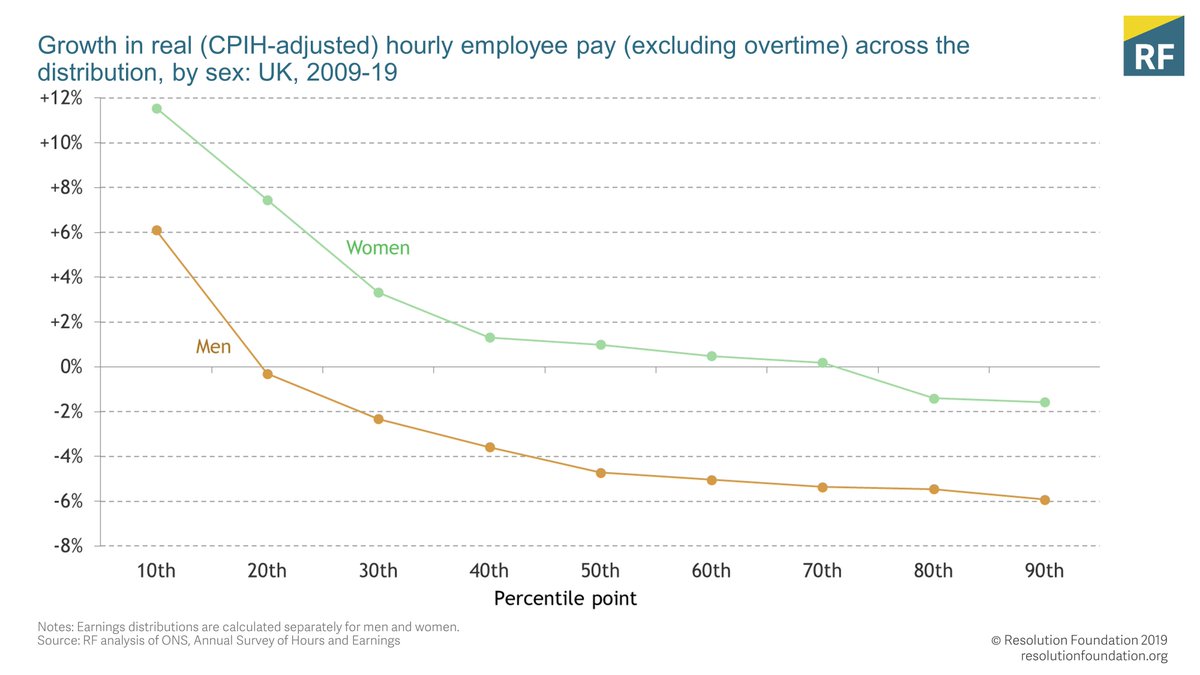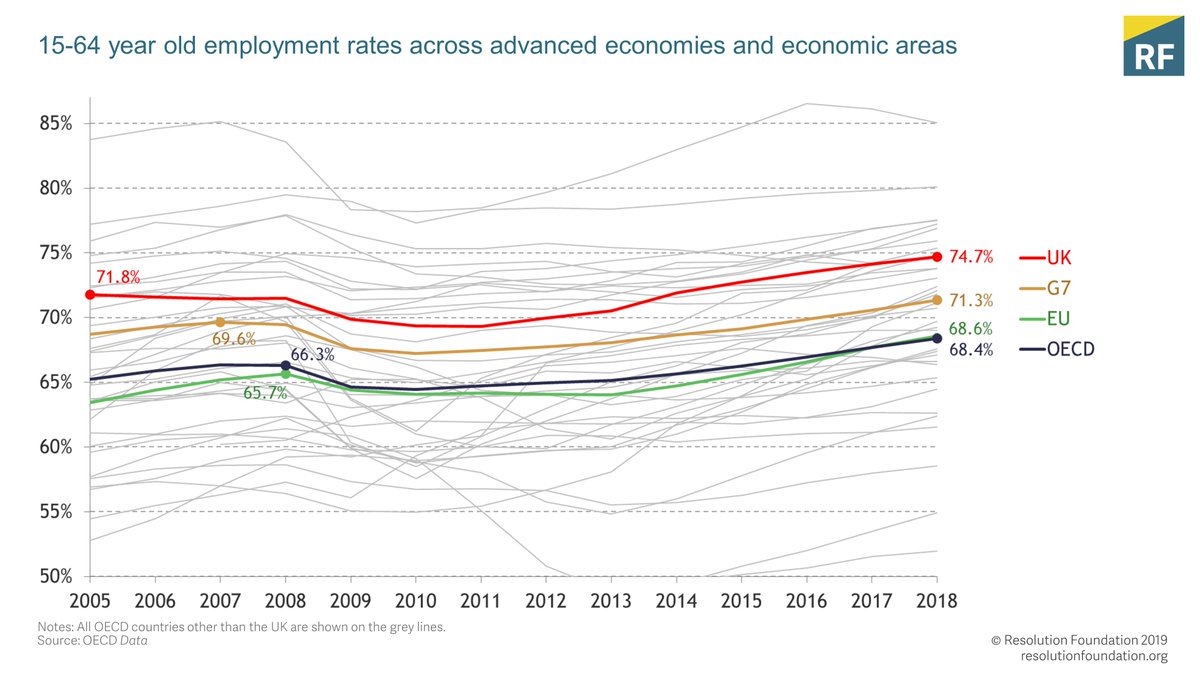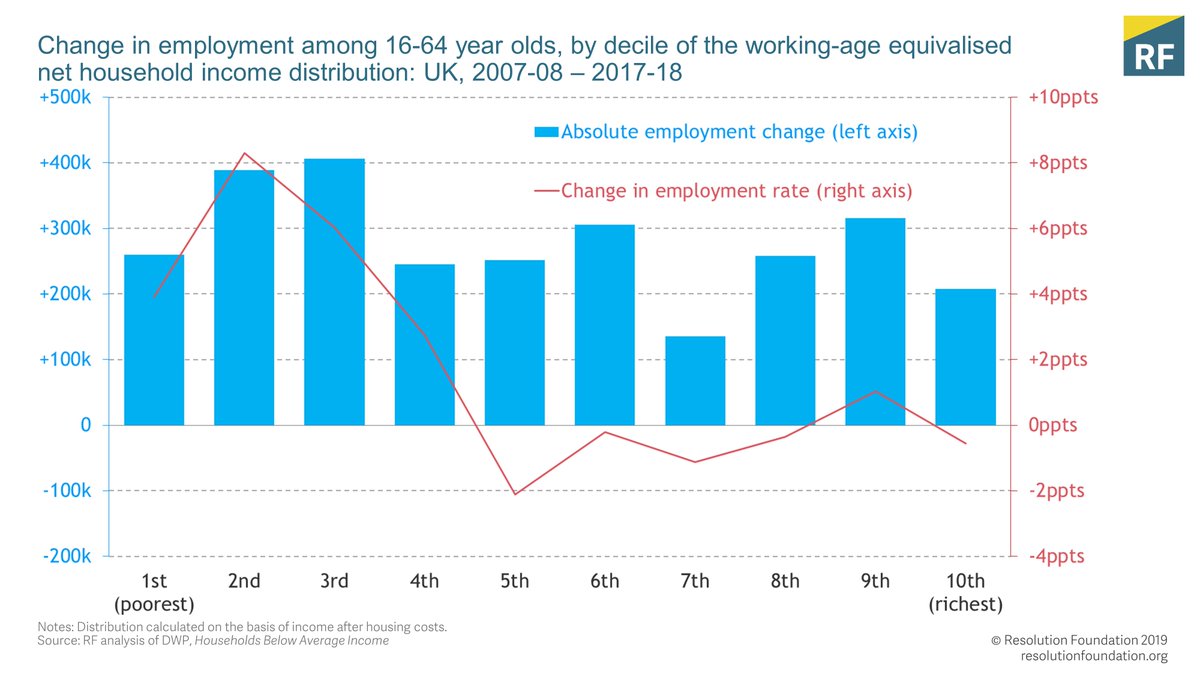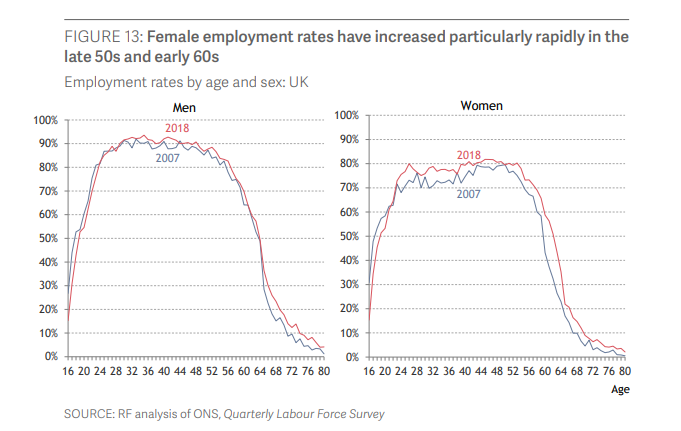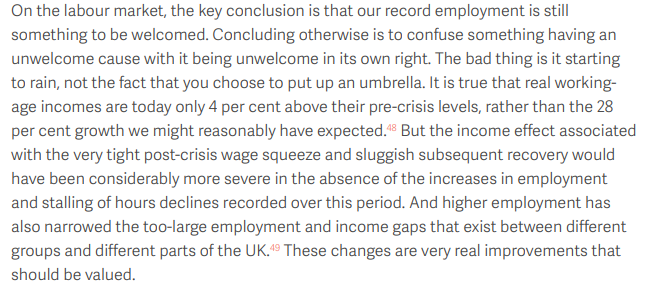So we set out to answer a rather big question... why does the UK have record employment? A thread...
The 3 million strong post-crisis employment boom is something no-one saw coming (see consistently pessimistic @OBR_UK forecasts), but less understandably that we haven& #39;t done a good job of explaining even once it turned up
NOT THE ANSWER 1: Ministers have pointed to a flexible labour market and the introduction of Universal Credit boosting work incentives... But our labour market hasn& #39;t got more flexible since 2008 and the jobs boom largely happened before anyone was on Universal Credit
NOT THE ANSWER 2: No this isn& #39;t just about migration. The UK-born employment rate has increased from 73.5 per cent to 76.3 per cent
NOT THE [FULL] ANSWER 3: @bankofengland + others argue that firms DEMAND for workers has increased because they& #39;re cheaper and economic uncertainty encourages them to hire not invest. But if labour demand was the big driver of high employment wages would be... strong not stagnant
THE ANSWER: we& #39;re working more because we& #39;re poorer. The huge and long lasting shock to our incomes from the financial crisis means we are protecting our family living standards by wanting to work more
This fits the theory. We want to work more for a given wage means an income shock becoming a labour SUPPLY increase. This would cause higher employment but lower wages. But what about the real world?
IT FITS THE DATA 1: the fact that we want to work more is why the decades long decline in the hours we on average work has come to a halt. And despite that more of us want to work more hours today than did back in 2008
IT FITS THE DATA 2: the jobs boom is all about women, and 2nd earners in couples in particular. Main earners (disproportionately male) have seen their earnings hammered, so more 2nd earners are working to compensate. Higher minimum wage has also increased their incentive to work
IT FITS THE DATA 3: the jobs boom isnt just a UK thing, so we need an explanation not just about the UK. Post-financial crisis income shock is a shared problem - so households are supplying more labour in lots of countries
IT FITS THE DATA 4: the income shock was bigger for some groups that had their benefits cut (younger couples with kids) or pension delayed. These are exactly the groups with the biggest employment increases
So we& #39;re working more because we& #39;re poorer. BUT record employment should still be welcomed. It& #39;s helped families protect their living standards and closed employment gaps between people and places. We still want the umbrella even though we hate the fact its raining
While we don& #39;t want to see employment fall, we should want to see a return to falling hours worked IF accompanied by strong pay growth. And we should be reducing how much work is insecure.
Importantly this reading of the past decade means the Phillips Curve (the inverse relationship exists between labour market slack and wage growth) is alive and well - and helps explain why it has shifted (why there was more slack in the labour market than we thought)
At a more general level, the lesson here is that our economies can change more than we think - and that we shouldn& #39;t always assume that& #39;s because of what policy makers of firms do. Sometime, just sometimes, humans change...
Read the full paper from myself and @lauracgardiner for more detail - including on how being poorer isnt just making us work more, it& #39;s making us have fewer babies... https://www.resolutionfoundation.org/publications/feel-poor-work-more/">https://www.resolutionfoundation.org/publicati...

 Read on Twitter
Read on Twitter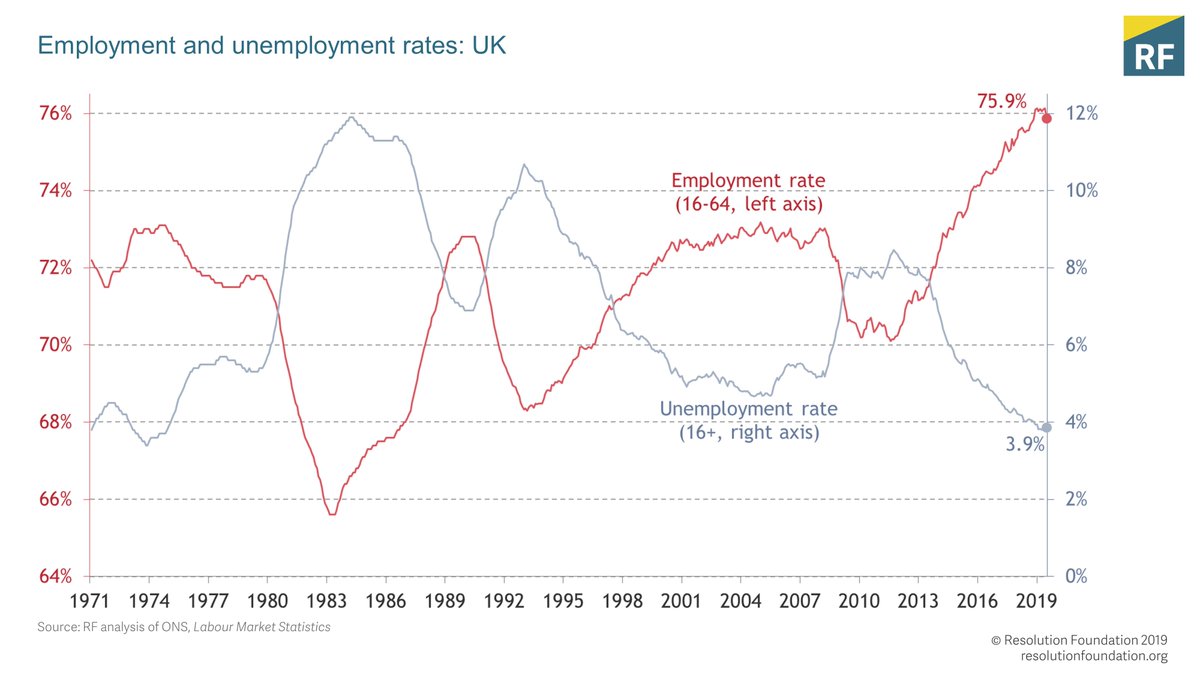
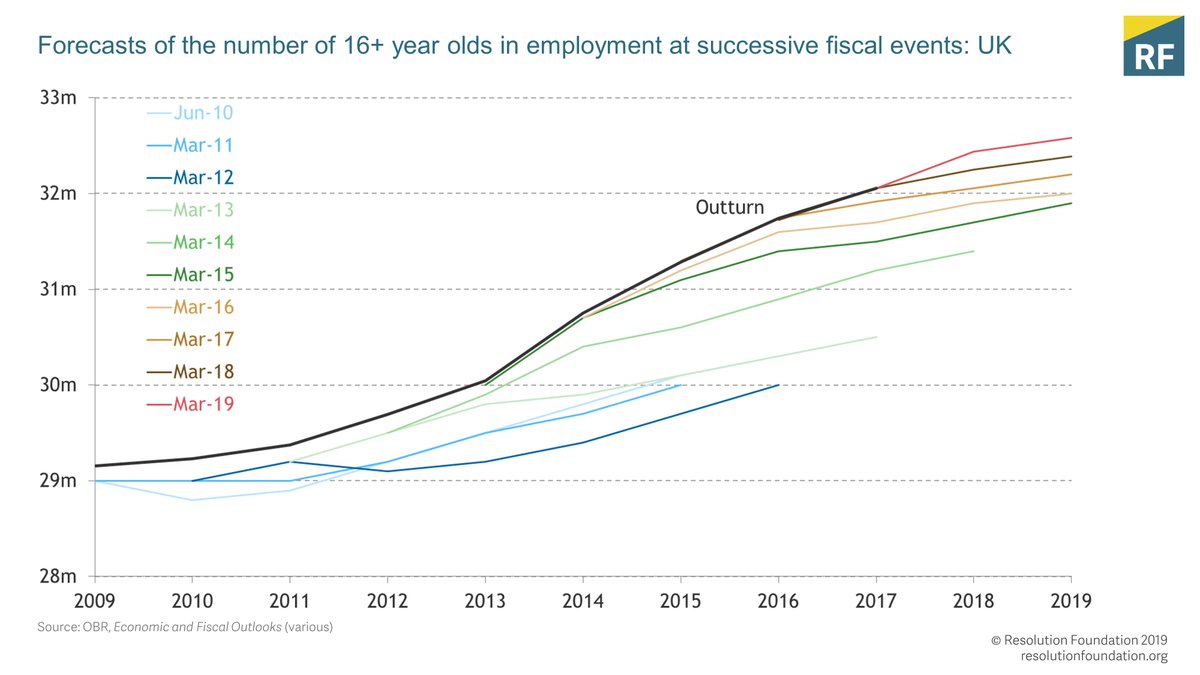
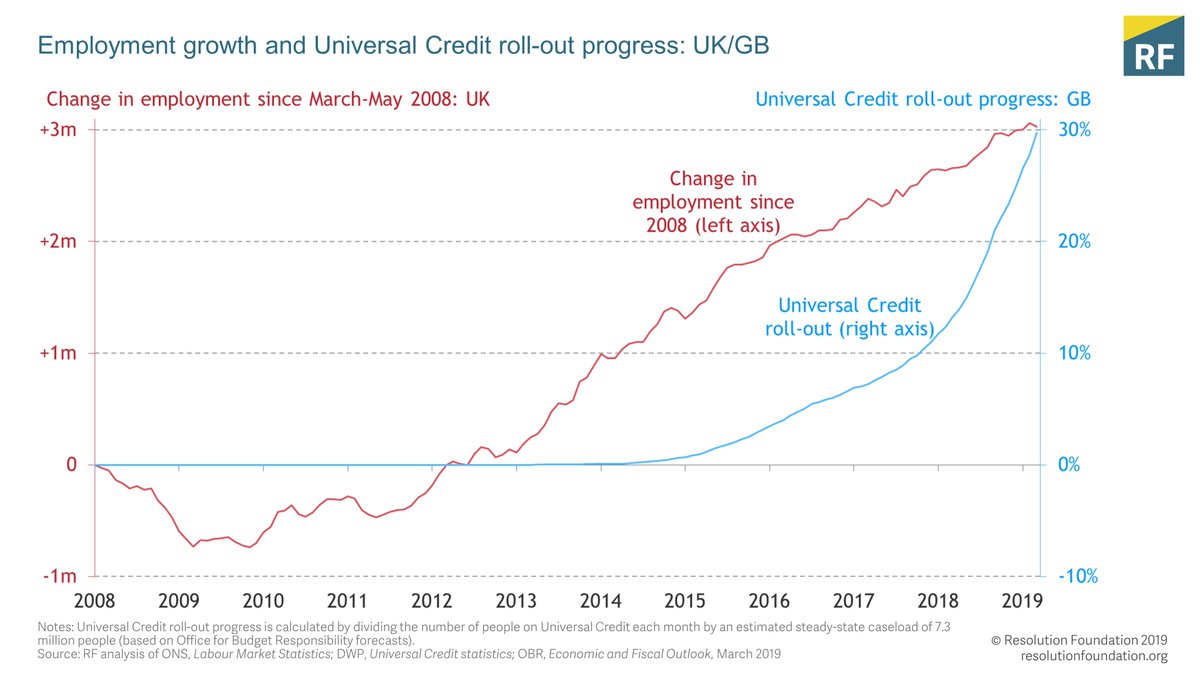
![NOT THE [FULL] ANSWER 3: @bankofengland + others argue that firms DEMAND for workers has increased because they& #39;re cheaper and economic uncertainty encourages them to hire not invest. But if labour demand was the big driver of high employment wages would be... strong not stagnant NOT THE [FULL] ANSWER 3: @bankofengland + others argue that firms DEMAND for workers has increased because they& #39;re cheaper and economic uncertainty encourages them to hire not invest. But if labour demand was the big driver of high employment wages would be... strong not stagnant](https://pbs.twimg.com/media/EJKzqH_XYAAwAok.jpg)
